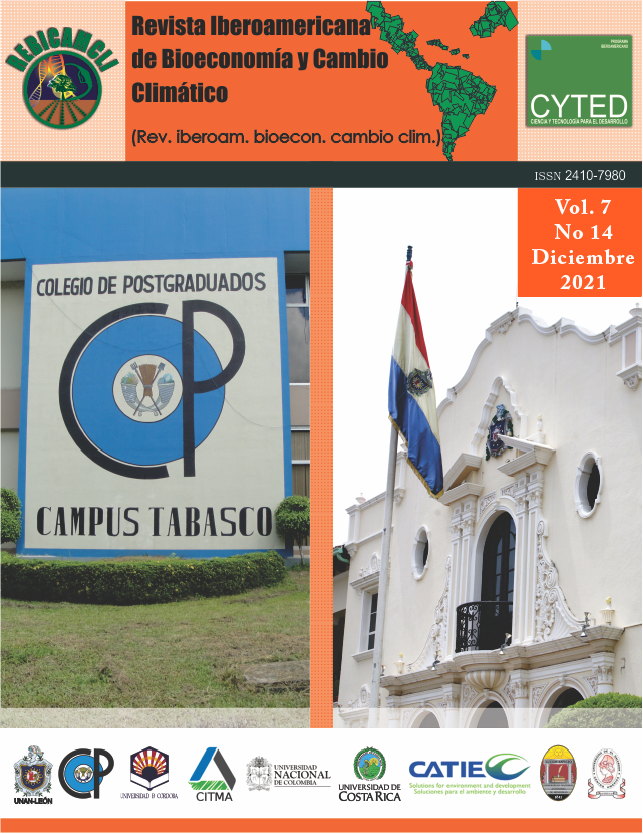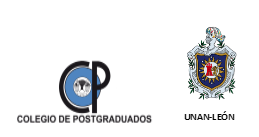The productive paths of the bioeconomy: The case of Honduras
DOI:
https://doi.org/10.5377/ribcc.v7i14.12820Keywords:
Climate change, Bioproducts, Biotechnology, Eco intensification, BiodiversityAbstract
Climate change has a negative effect on ecosystems, livelihoods, and society in general. Because of this, alternatives arise like the bioeconomy that seeks to reduce the environmental impact and climate change through its main pathways. In this regard, the objective of this research was to evaluate the contribution of the agricultural sector to the Gross Domestic Product (GDP) of Honduras and the development potential of the bioeconomy in the country. The research was carried out in Honduras, during 2021 and the approach used was qualitative, through a systematic review of the literature. The main results show that during the period between 2015 and 2020 the contribution of the agricultural sector remained at 14%, ranking third after the manufacturing industry and financial intermediation sector. However, regarding the bioeconomy, it was possible to establish specific contributions in the following pathways: a) Valuation of biodiversity resources, b) Eco intensification, c) Biotechnology applications, d) Ecosystem services, e) Efficiency of value chains, and f) Bio refineries and bioproducts. As a conclusion, the issue of bioeconomy in Honduras leans towards biotechnology and biorefineries. Although both paths involve technologies that are not very accessible to small agricultural farmers. Therefore, the participatory design of bioeconomy policies and strategies for the products and services sector is essential, which would improve the competitiveness and sustainable development of the country.
Downloads
802
HTML (Español (España)) 0
Published
How to Cite
License
Copyright (c) 2021 Ibero-American Journal of Bioeconomy and Climate Change

This work is licensed under a Creative Commons Attribution-NonCommercial-ShareAlike 4.0 International License.
Copyright © Rev. iberoam. bioecon. climate change (Graduate School and UNAN-León, School of Agricultural and Veterinary Sciences / Department of Agroecology / Center for Research in Bioeconomy and Climate Cahnge (CRByCC).







